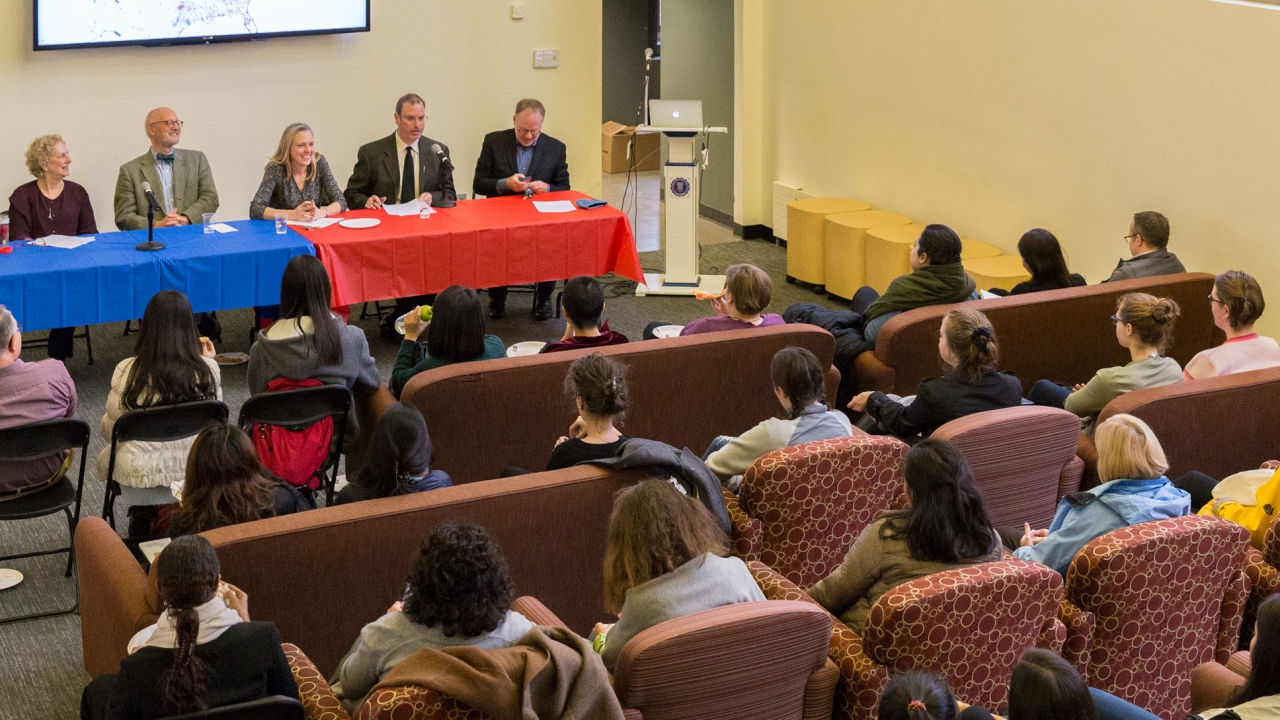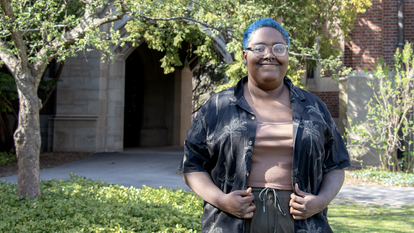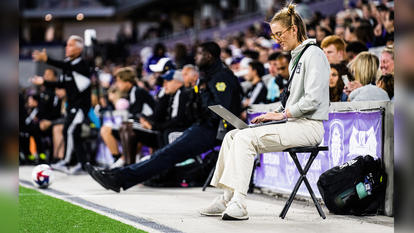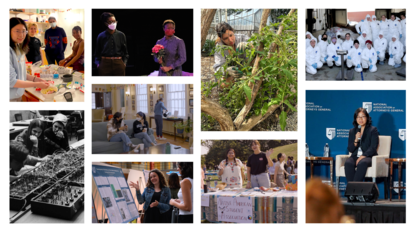Faculty Engage the Wellesley Community with Post-Election Questions

The 2016 U.S. presidential election may be over, but many of the conversations about where its outcome may take the country are still developing. As the heart of Wellesley’s vibrant intellectual community, faculty are taking the lead in exploring these issues with panels and discussions that engage the entire campus. In the best tradition of interdisciplinary inquiry, topics ranged from the socio-political to quantitative analysis and media arts.
Only a day after the election, the political science department opened the conversation with a gathering titled, “Election 2016: What Just Happened?” Faculty were on hand to serve as a sounding board for students and to answer questions raised during the initial reaction to election results.
The following week, faculty presented “Election 2016: Reflections from the Social Sciences,” a panel of Wellesley experts representing the depth and breadth of perspectives across the social sciences.
Tom Burke, professor of political science, offered an analysis of post-election data and asked the question: Is the liberal/conservative political dichotomy of the U.S. moving toward a more cosmopolitan/nationalist model? Todd Belt, visiting lecturer in political science, focused on what happens next, touching on the presidential transition and ethical issues related to the presidency. Courtney Coile, professor of economics and director of the Knapp Social Sciences Center, addressed the potential fate of the Affordable Care Act in the context of rising inequality and staggering wages nationwide. Jonathan Imber, Jean Glasscock Professor of Sociology, discussed the effect of “the entertainment-industrial complex” on the election, and the influence —or non-influence—of third-party candidates. Susan Reverby, Marion Butler McLean Professor in the History of Ideas and professor of women’s and gender studies, concluded the panel discussion with commentary on the historical context of resistance to change, assuring those seeking organizing for progress, “We know how to do this.”
On November 18, a teach-in hosted outside of regular class hours brought together students, faculty, and staff to discuss the role of bias in the election and what we can do to move forward. The four faculty members who led the discussion represented diverse disciplines and viewpoints.
Casey Pattanayak, Jack and Sandra Polk Guthman '65 Director, Quantitative Analysis Institute and a lecturer in quantitative reason and mathematics, led with an explanation of polling—its history, factors that affect its accuracy, and an explanation of why the polls were not as inaccurate as some critics allege. “To me, the biggest story is about our personal biases,” she said. “Why did a predicted probability for a Clinton win between .6 and .9 feel like certainty to so many of us? The human instinct to create certainty from uncertainty is the reason that my students’ faces looked the way they did on November 9.”
Assistant Professor of Computer Science Eni Mustafaraj spoke about the way platform algorithms support bias in social media, and how social media can be manipulated as a tool for propaganda. She said she decided to share the information after a friend asked her, “What did we do beyond voting? Nothing. We believed the polls, we thought victory is a certainty. From now on we need to use our knowledge to contribute to the education of everyone.”
Assistant Professor of Psychology Angela Bahns drew from her research and teaching on the psychology of prejudice to shed light on how changing social norms can affect whether individuals suppress or express prejudice. Assuring the audience that “we have power, and we have collective power,” Bahns called on the Wellesley community to “create a public commitment to equity and social justice,” to not let silence equal endorsement of hate and bigotry, and to reach out to marginalized groups and people whose views differ from our own.
The final topic examined the role that the arts and media can play in fostering an open dialogue that confronts systems of power and privilege with uncomfortable truths, addressed by Assistant Professor of Cinema and Media Studies Nick Knouf. “I think if there’s something to be hopeful about,” he said, “it’s the outpouring of activist energy I’ve witnessed amongst my colleagues and students.”
Pattanayak, Mustafaraj, Bahns, and Knouf have developed a Teach-In Resources Sheet to supplement their comments, including supporting materials and suggested reading (downloadable here).
A second teach-in that will further explore related topics is planned for Tuesday, November 29; details to follow.



